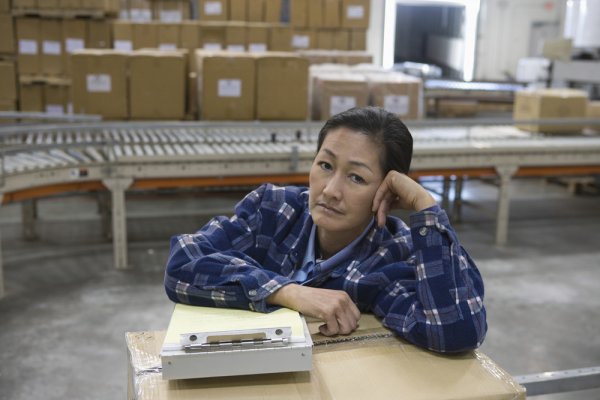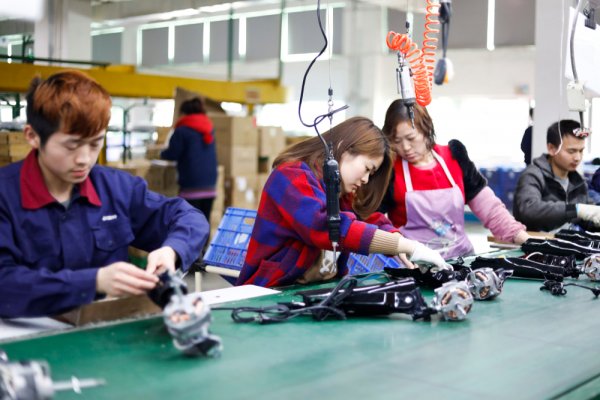When the annual Bloomberg Gender Equality Index was released in January, it included 34 Asian companies out of a total of 325.
There are good reasons why large companies want to be leaders in workplace gender equality and many are rewriting their policies to achieve participation, pay and leadership ambitions.
Social norms and corporate cultures are hindering some of the best efforts to move on gender inclusiveness in their workforces.
But research commissioned by Investing in Women, an Australian Government initiative, has found that social norms and corporate cultures are hindering some of the best efforts to move on gender inclusiveness in their workforces.
 The research looked at some members of Business Coalitions for Workplace Gender Equality in Indonesia, the Philippines, Myanmar and Vietnam. These coalitions are led by large firms that have identified the importance of gender equality to driving business outcomes. In conjunction with global advisory, data analytics, and research firm IDinsight, Investing in Women conducted a study at seven firms looking at company policies, culture and attitudes to change.
The research looked at some members of Business Coalitions for Workplace Gender Equality in Indonesia, the Philippines, Myanmar and Vietnam. These coalitions are led by large firms that have identified the importance of gender equality to driving business outcomes. In conjunction with global advisory, data analytics, and research firm IDinsight, Investing in Women conducted a study at seven firms looking at company policies, culture and attitudes to change.
The study looked at recruitment policies and their attempts to address unconscious bias by using gender sensitive language and visuals in job ads and ensuring that both men and women sit on recruitment panels.
Staff reported that women have equal access to promotions and professional development opportunities – they referred to non-discrimination policies as evidence.
It also examined policies that enable women to enter leadership positions. Across the seven firms, staff reported that women have equal access to promotions and professional development opportunities – they referred to non-discrimination policies as evidence.
It looked at how flexible work policies could foster career success while managing responsibilities at home. Several companies were planning to introduce a menu of flexible work options based on the specific needs of their employees.
However, despite their best efforts, we observed that gender norms and company culture were still limiting women’s professional advancement – and that staff were largely satisfied with the status quo.
Employees interviewed often perceived that it was “natural” for some positions to be predominantly filled by men, and others by women, as certain characteristics were seen to be inherent of each gender.
Employees interviewed often perceived that it was “natural” for some positions to be predominantly filled by men, and others by women, as certain characteristics were seen to be inherent of each gender.
“This work is quite meticulous, many men won’t like it. Basically, it requires perseverance, and that character trait women have more often than men.” (Female)
 Staff didn’t consider a default preference for one gender over another as being unequal treatment, as long as there were no explicit gender requirements in the hiring process. In one company, employees viewed women as being sociable and good at customer facing roles and men as being strong and well-suited for physical roles. In another, they spoke about men being straightforward, and women being accommodating in communications.
Staff didn’t consider a default preference for one gender over another as being unequal treatment, as long as there were no explicit gender requirements in the hiring process. In one company, employees viewed women as being sociable and good at customer facing roles and men as being strong and well-suited for physical roles. In another, they spoke about men being straightforward, and women being accommodating in communications.
“Normally, the female doesn’t like the way that people are aggressive … and then they [take] it personally. Then they got emotional.” (Male)
Outside the workplace, expectations for women to care for their families often interfered with their job retention and advancement. A few women indicated that they didn’t want to advance because of competing priorities, and they shied away from greater responsibility so they could also manage their households. In other cases, motivation was not the barrier – but women felt family pressure to spend more time at home. We face these challenges in Australia too, but in Southeast Asian cultures where married couples commonly live with extended families, these pressures may be more pronounced.
In many instances, flexible work policies designed to foster women’s success were popular, but employees didn’t think they had anything to do with gender equality.
In many instances, flexible work policies designed to foster women’s success were popular, but employees didn’t think they had anything to do with gender equality. On top of this, very few respondents believed that flexible work could enable men to share responsibilities at home. The risk is that these policies could perpetuate already unequal divisions of unpaid work.
“[In our company, male employees who are fathers] stay in the office late, they have never taken leave [to collect] their kids … sometimes … but very rarely. From what we are seeing here, the burden of childcare falls to the woman. (Female)
 Flexible policies can also exacerbate unequal patterns in the workplace. Long maternity leave for women – while important – may hinder career progression. In one company where women were given six months of maternity leave, and men were only given three days off, it was common for women to return to work early to try and catch up.
Flexible policies can also exacerbate unequal patterns in the workplace. Long maternity leave for women – while important – may hinder career progression. In one company where women were given six months of maternity leave, and men were only given three days off, it was common for women to return to work early to try and catch up.
In some cases, challenging work assignments were given to men to allow women to spend more time at home. But when asked, some interviewees thought the idea of men and women having equal parental leave was unusual: “What would a dad do at home for so long?” (Female)
This study shed light on social norms and women’s double burden in large companies in Southeast Asia. Although companies are embarking on ambitious reforms, evidence suggests that their impact will be limited if social norms remain static. The four business coalitions will continue to support their member firms to improve WGE through adoption of new policies and practices, and consideration of gender norms at play. Ultimately, company leadership must consider whether the culture they set and promote is going to achieve the WGE outcomes they are seeking or reinforce the status quo.




